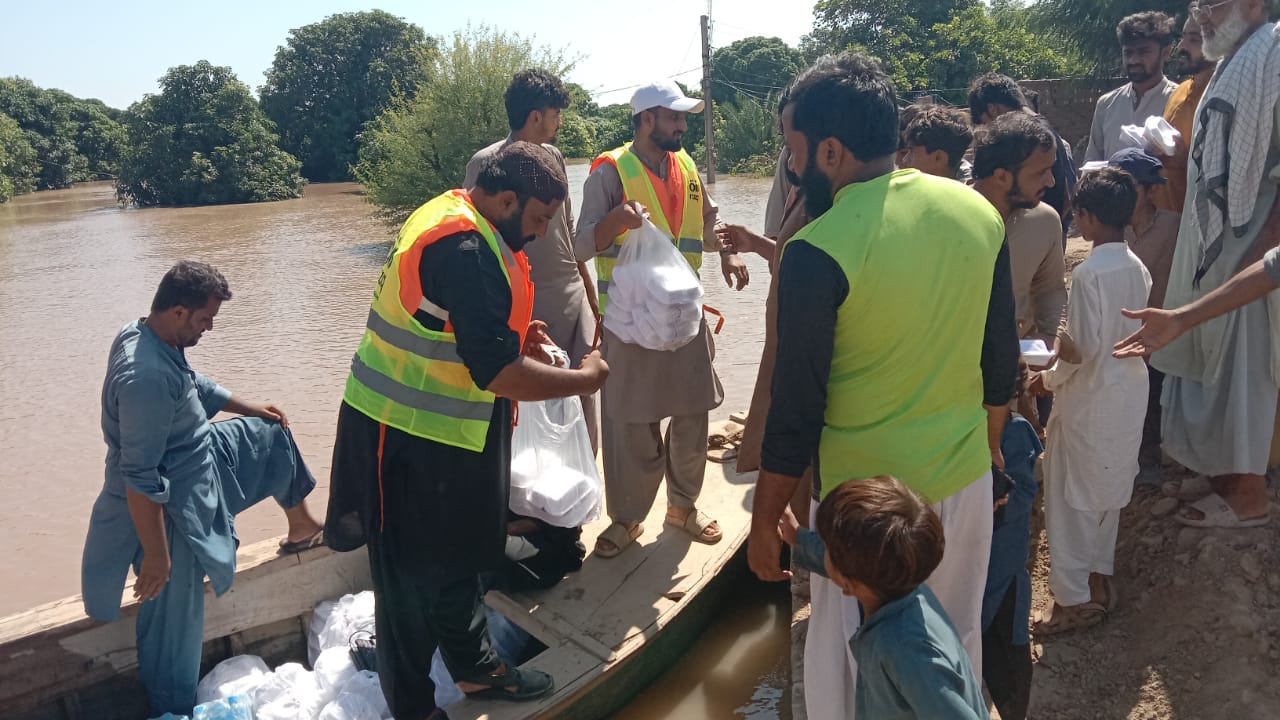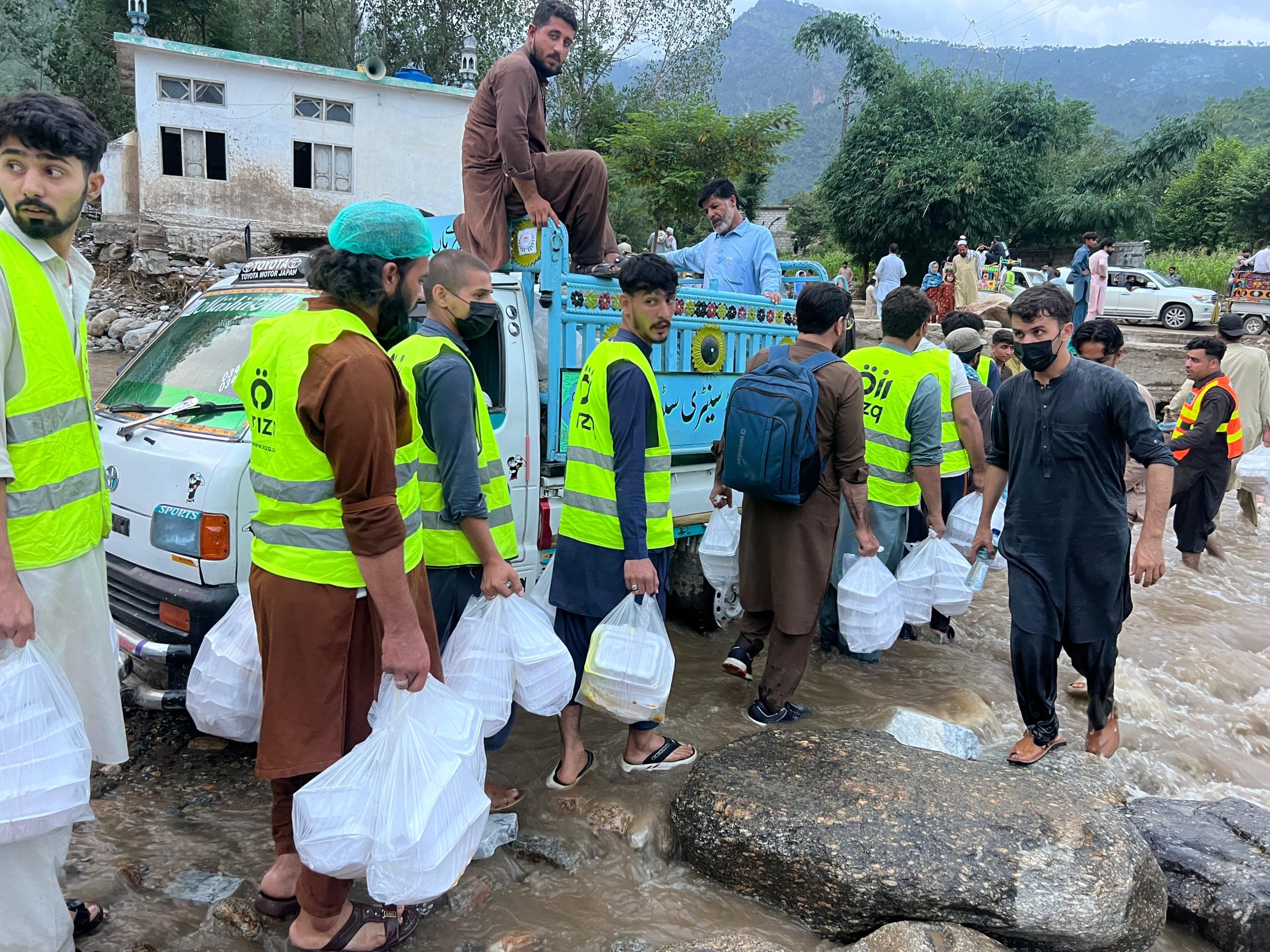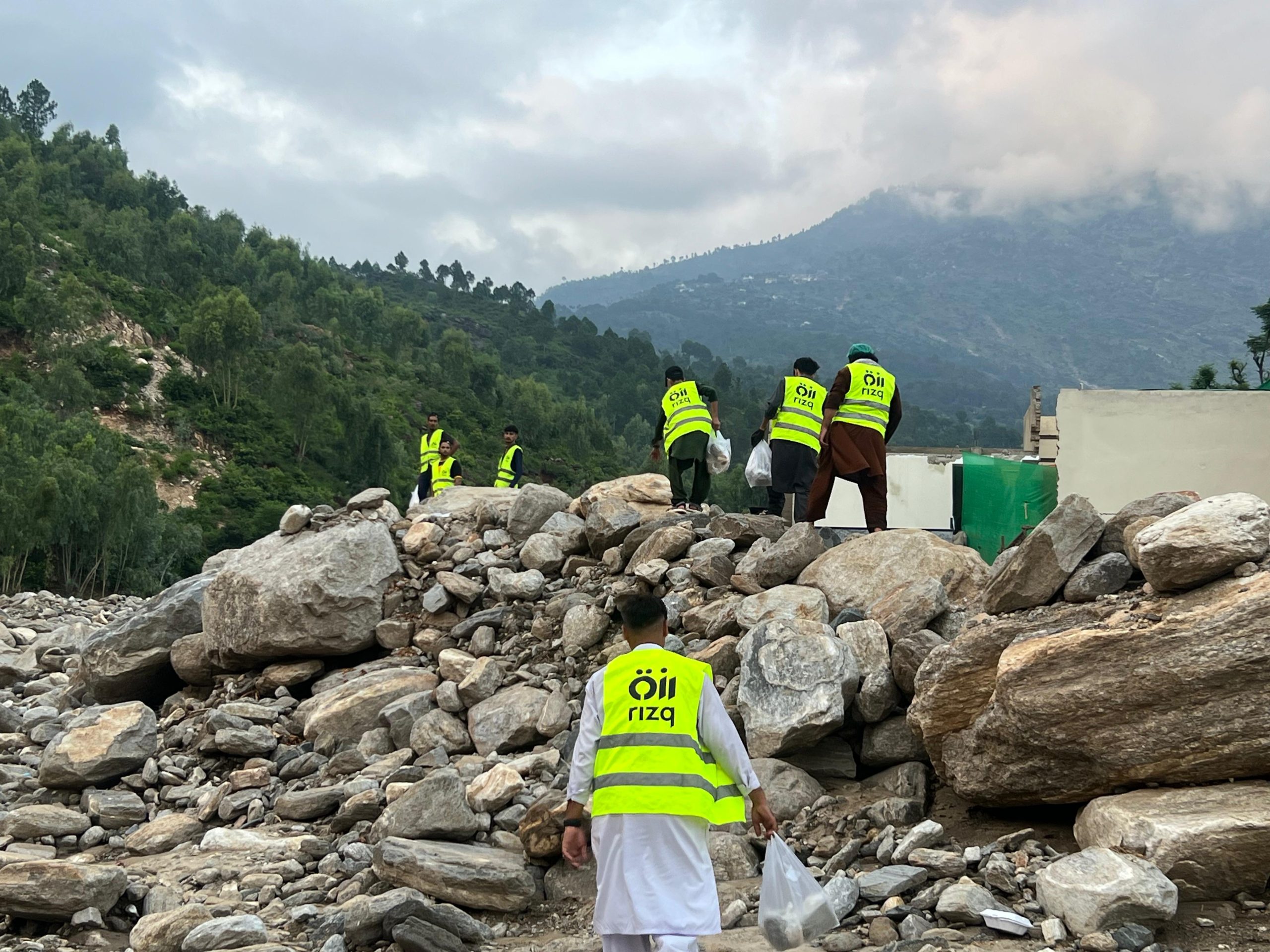Rizq’s Emergency Relief During the 2022 Floods
In 2022, Pakistan experienced one of the most devastating climate disasters in its history. Torrential monsoon rains and overflowing rivers displaced millions, destroyed homes and livelihoods, and exposed glaring vulnerabilities in healthcare, housing, and food security. Amid this unprecedented crisis, Rizq—a social enterprise committed to ending hunger—pivoted from its traditional food security programs to launch an extensive emergency relief operation, becoming one of the few organizations delivering structured aid at scale when disaster struck.
With a clear mission to provide emergency food assistance, rebuild livelihoods, and establish sustainable support models for future climate crises, Rizq mobilized a vast network of volunteers, donors, and partners. From the flood-hit plains of South Punjab to the inundated villages of Sindh and Balochistan, Rizq extended its reach to the most vulnerable.
A Multi-Faceted Response to a Multi-Dimensional Crisis
Rizq’s emergency programming spanned across critical areas:
- Food Relief: Collaborating with World Central Kitchen and local partners like Monal, Rizq distributed over a million meals and 35,000 ration packs to displaced families.
- Health & Hygiene: Through its partnership with Global Medic, Rizq distributed hygiene kits, medicines, mosquito nets, and clean drinking water supplies to prevent the spread of waterborne diseases.
- Shelter & Livelihoods: Temporary shelters were provided during the peak of the crisis, followed by the introduction of prefabricated housing units as part of long-term rehabilitation efforts. The Kisaan Dost Program (KDP) also emerged during this time to support flood-affected farmers and restore agricultural productivity.
Strategic Structure and Execution
Rizq’s centralized leadership at headquarters focused on strategy, coordination, and fundraising, while regional teams, particularly members of the Rizq Youth Republic (RYR), were deployed to manage on-ground operations. These teams identified beneficiaries, ensured efficient aid distribution, and led community engagement efforts.
The response was carefully phased:
- Planning & Mobilization: Conducting data mapping of affected areas and forming partnerships with NGOs, government entities, and corporations.
- Execution: Engaging trained volunteers and collaborating with influencers and media outlets to increase reach and visibility.
- Sustainability: Embedding emergency relief into broader food security and agricultural development programs, and enhancing transparency through digital reporting.
The Impact and the Path Ahead
Rizq’s efforts supported thousands of families, engaged hundreds of volunteers, and raised millions in donations and in-kind support. Beyond numbers, the impact lies in stories—families finding shelter, farmers sowing new seeds, and youth stepping up as frontline responders.
The 2022 floods also taught critical lessons about scalability, coordination, and resilience. Logistical barriers, safety concerns, and navigating bureaucratic constraints were challenges that shaped Rizq’s evolving disaster response model.
Moving forward, Rizq is integrating its relief work into long-term strategies through its Agriculture & Livestock Division, strengthening systems to ensure that vulnerable communities are not just supported in crisis—but empowered to rebuild and thrive.



